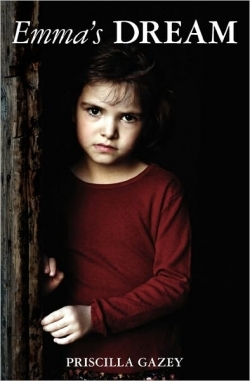Emma's Dream
Unicef reported in 2008 that there were 145 million orphans in the world—that’s too many children who lose their parents at a young age and may have no chance to thrive in a loving family home. Emma Chapman knows well the pain of being an orphan. Her parents died in a car accident when she was only eighteen months old, and Emma survives through her teen years in a lonely foster home.
Vowing to do her best to save other children from the isolated upbringing she suffered, Emma establishes her own orphanage in Arizona with the help of her dear friend, Annie, and some hired help. Their peaceful existence is violently disrupted when a baby boy is left on the doorstep and then, a few weeks later, is kidnapped by a man who shoots Annie in the shoulder in the process of absconding with the infant.
Frightened and heartbroken, Emma and Annie turn to their good friend, Greg, and the policeman assigned to their case, Dan. While the police try to solve the case, friendship turns to romance as Emma and Dan fall in love and Annie and Greg finally admit their attraction to each other.
Priscilla Gazey shows talent at conducting an intricate tangle of plot lines and points of view without losing track of important details. However, the writing relies heavily on clichés. The four main characters behave in ways that will be very familiar to even the briefest connoisseur of romance/suspense novels. The dialogue between characters, even that which bubbles up in the midst of passion, feels flat and forced and hangs on phrases that have already been used too many times.
The novel also shows a couple anachronistic problems that are jarring for readers. While the setting is contemporary—Emma has a cell phone—the two women have concerns about their romantic relationships that feel embedded in the first half of the twentieth century. Emma muses: “She was thinking that perhaps she needed to let her feminine side show a little more. She knew that she came on strong for a woman at times, and that it could be a turn-off to some men. She would work on that.” Despite these problems, Emma’s Dream is a smooth read; Gazey proves she that she has the ability to navigate the many pages of a novel and that the subjects of her writing—orphans and the people who try to improve their lives—have tremendous potential.
Reviewed by
Andi Diehn
Disclosure: This article is not an endorsement, but a review. The publisher of this book provided free copies of the book and paid a small fee to have their book reviewed by a professional reviewer. Foreword Reviews and Clarion Reviews make no guarantee that the publisher will receive a positive review. Foreword Magazine, Inc. is disclosing this in accordance with the Federal Trade Commission’s 16 CFR, Part 255.

